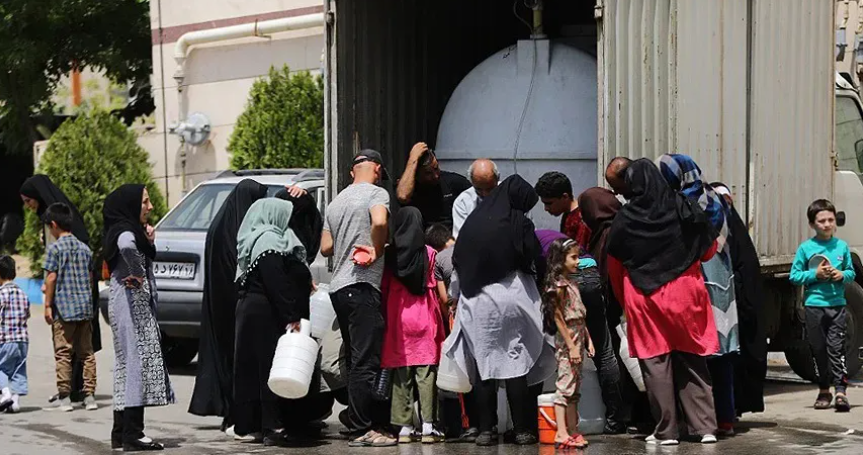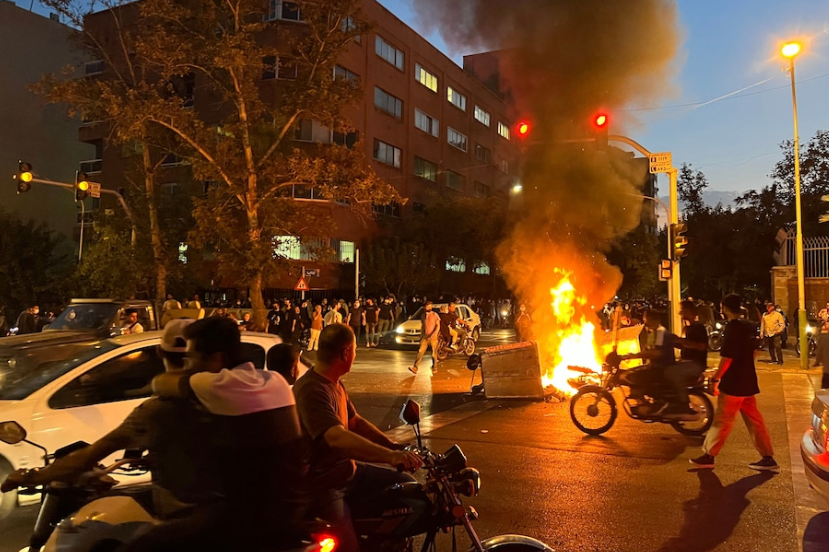September 23, 2022

The regime appears to have instituted a crackdown against “dissidents” on an unprecedented scale, even before the recent mass protests began.
News reports speak of the regime arresting 25 people demonstrating against a water shortage in Hamadan, and at least 12 Baha’is accused in August of spying for Israel, after 52 Baha’is were jailed in July without explanation. In addition, yet another film director was jailed and 500 women arrested for violating the dress code. At least one man was arrested for organizing a demonstration calling for action to save Lake Urumiyeh. And about 70 oilfield workers were arrested when they came to Tehran and marched in front of the Oil Ministry.
What’s more, the police announced plans to use security cameras based in the Tehran Metro to pick out women with uncovered hair and use facial recognition technology to identify them for arrest. This will presumably use technology bought from China, which has started a huge program of using facial recognition technology attached to thousands of cameras in city streets to pick out wanted people.
The program in China uses facial recognition technology to pair people walking in the streets with already existing photos of wanted or suspicious people. It isn’t clear how the program announced for the Tehran subways would work since there would not be pre-existing photos for identification.
It would appear to be much easier just to station police officers on subway platforms to arrest women with uncovered hair. Many people suspected that the announced facial recognition program was just intended to scare women into watching their headscarves more closely.
In Hamedan and a few other cities, there have been protests against the water supply being cut off, apparently because the local waterworks were flooded as result of the recent heavy rains and the water supply made temporarily undrinkable. In some cities, the local authorities have brought in water trucks to deliver drinking water to the public. But Hamadan is a large city where not everyone could be supplied and the water cutoff lasted a full week.
Hamadan’s mayor said of the 25 people arrested for protesting, 20 were not from the city and were trying to cause “fear and unrest.”
The 12 Baha’is were all arrested in Mazandaran province, the Intelligence Ministry said. It said two of those arrested were trained in Israel and the group was trying to promote the practice of Baha’ism in schools, particularly in kindergartens. The regime commonly links Baha’is to Israel because the international headquarters for the Baha’i faith is in Haifa. But the headquarters was set up there in the 19th Century when Haifa was part of the Ottoman Empire.
The plan to use cameras in the Metro stations to identify women without covered hair was announced by the Headquarters for Promoting Virtue and Preventing Vice (PVPV), the regime’s chief organization for enforcing morality rules.
The Guardian of Britain noted that Iran has been issuing biometric ID cars to its citizens since 2015. It said Iran took facial scans before issuing those cards and that data could be use to pinpoint women with uncovered hair on subway platforms. But many others said the available data are not accurate enough for that purpose.
The head of the body, Mohammad-Saleh Hashemi-Golpayegani, also proposed that gender segregation, which now applies to all K-12 education, be extended to universities. “I don’t have an answer when I’m asked why students are kept separate before they reach adulthood but are mixed when they go to university,” he said.
He defended segregated campuses by saying even the United States has them. Actually, there are no campuses where men and women are kept in separate classroom. There are, however, three all-male universities and 31 all-female universities. The number of all female schools was 281 in the 1960s. Separate universities for males and females have become very unpopular in the US.
Some social media reported that Golpayegani’s own daughter is enrolled at a co-ed university in Belgium, though that could not be double-checked.
Meanwhile, the Human Rights Activists News Agency said Sepideh Rashno, the woman arrested July 16 for riding a Tehran city bus without a hair cover, was released on bail to await trial. She was detained 45 days.
























